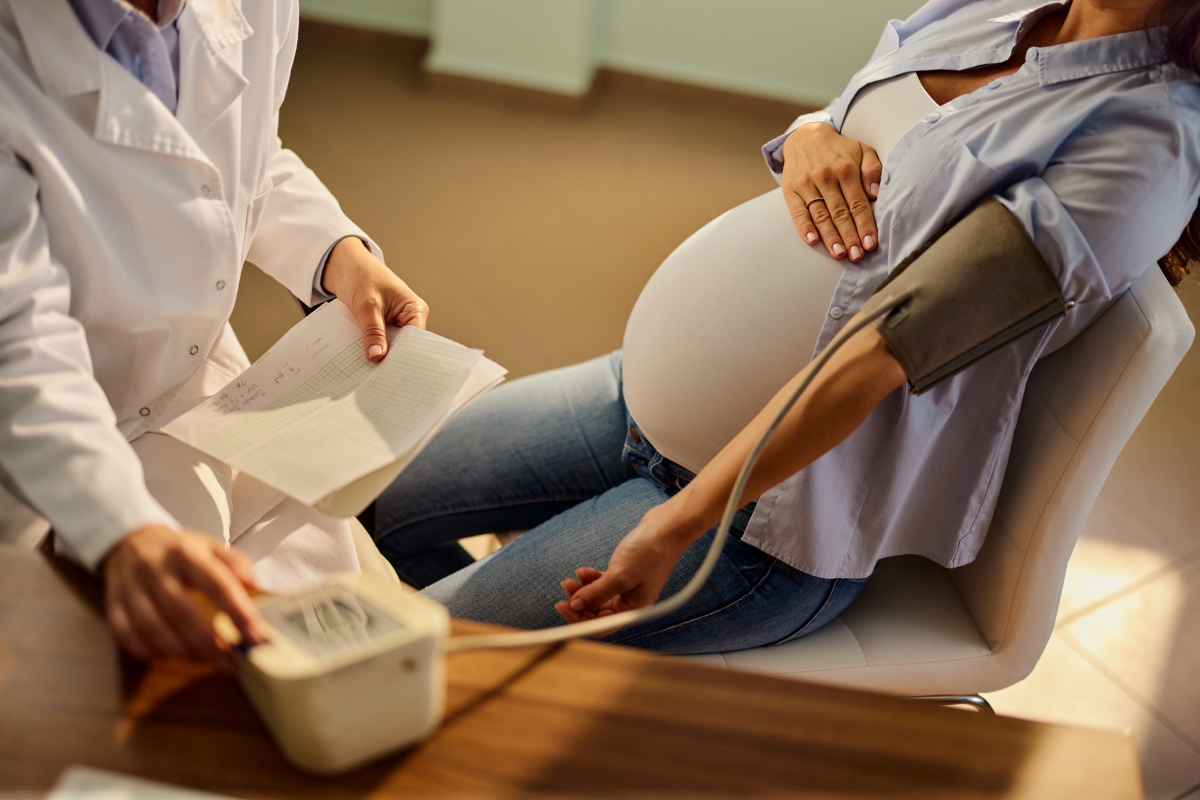
Detecting preeclampsia during pregnancy is not always easy. This is because, sometimes, preeclampsia shows no obvious symptoms.
Preeclampsia is a serious pregnancy complication that causes high blood pressure. The Centers for Disease Control and Prevention estimates it occurs in 5%-7% of all pregnancies.
A prenatal lab examination can detect elevated urine protein levels, an indication of preeclampsia. Other symptoms can include severe headaches, vision changes, swelling, severe breathing issues and even seizures (eclampsia). Early symptom detection is important to improving the odds of a safe pregnancy.
“It is important to know about your overall health early in your pregnancy,” says Dr. Yvette Smith, Northside Hospital OB/GYN.
“The symptoms of high blood pressure in pregnancy often mimic normal symptoms of late pregnancy,” Dr. Smith added. “Getting blood pressure readings and a health history early in pregnancy can provide important information as we evaluate for possible pregnancy-induced high blood pressure later in pregnancy.”
When suspicion of preeclampsia exists, a thorough evaluation will include hospitalization, so health care providers can closely monitor the mother and baby.
The treatment for preeclampsia is the baby’s delivery. If only mild preeclampsia exists and both baby and mother are doing well, delivery ideally will be after 37 weeks. If there is a threat to either the baby's health or the mother’s life, delivery is scheduled earlier.
“Medications can be used in women who may be at risk for developing blood pressure issues in pregnancy, but they must be started at the end of the first trimester or very beginning of the second trimester to be effective,” Dr. Smith said. “Early prenatal care is so important.”
The effects of preeclampsia do not necessarily end after pregnancy. Women who have had preeclampsia during pregnancy have a higher risk post-delivery for developing blood pressure problems, high cholesterol, diabetes, stroke and heart disease.
Women who experience preeclampsia during pregnancy are at nearly double the risk for heart disease or stroke in the subsequent 5-15 years. Women who have had severe preeclampsia may have a greater than six-fold risk.
Women who’ve experienced preeclampsia must embark on a healthy lifestyle path and follow preventive measures along with continued screening for diabetes, high blood pressure, high cholesterol and premature heart disease. For recommendations specific to you, continue regular checkups with your primary care physician or cardiologist. Communicate with your physician at any time that something doesn’t feel right to you.
Learn more about cardio-obstetrics at Northside.

